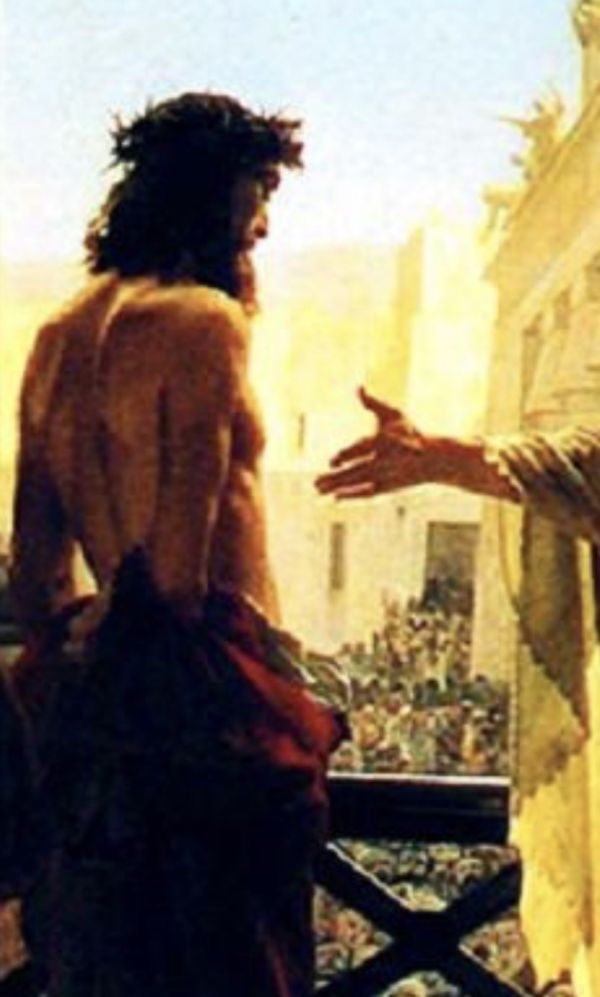The King of the Universe: perhaps the least gifted?
(Dan 7:13-14; Rev 1:5-8; Jn 18:33-37)
All the kingdoms that followed before Jesus were inspired by the same brutal principle: competition [first Reading].
The strong have subjugated the weak, the rich have imposed themselves on the poor, the swiftest have enslaved the least gifted.
New rulers have installed themselves in place of their predecessors, without making the coexistence of peoples or daily life more human.
Thoughts and feelings remained identical: voracity, cruelty, overpowering.
Jesus interrupted the succession of fierce empires forever. He overturned values by placing not power but Communion at the summit.
He introduced a new criterion, that of the human heart - the opposite of the cruel instinct of beasts.
But Pilate has in mind only the characteristics of the kingdoms «from» (v.36) this world.
Domains brought about by ambition. Realities based on the use of force and the persuasion of money.
Jesus does not kill: He goes to die, He does not command but obeys; He does not ally himself and does not seek the great and powerful but places himself on the side of those who count for nothing.
To possess, to conquer, to exterminate, to flaunt, are not peremptory signs of strength, but of defeat: 'great' is he who serves.
Unfortunately, the script of kingship coming «from» this world is not only played by the leaders: the crowds like it too.
On the Palatine Hill, near the Circus Maximus, a graffito dating from around 200 depicts a person in adoration of the Crucifix portrayed with a donkey's head.
Truth of God, regality of man - and vice versa.
In the Gospel passage, John paints a picture of the underlying perplexities that plague the Proclamation even today.
Jesus asks the Prosecutor to think by himself; to think not as a dominant figure.
[The Lord had made an identical point to the guard who had slapped him].
Everyone turned against him, He even displeased his own people.
Perhaps the masses see the Lord's proposal as a threat to the false security that power is able to provide.
Never affect the petty idleness arising from an established, even resigned or bogus status - as long as it is not alarming.
Sometimes, sadly, the scripts of royalty and subordinates intersect and support each other.
Truth and Kingship.
Among all peoples the ideal of a successful “character” is the Sovereign: rich powerful free ruler.
To Pilate, perfectly placed in the power hierarchy, the Master produces a kind of mental crumbling.
It is the singular - truly Priestly - work of the personal journey of Faith: the invitation to question oneself.
Each one of us, as a King who does not allow himself to be intimidated by the same old sides from without, but demands a full life, his own.
Jesus at the end of his earthly life is quite silent. He waits for each one to speak out and choose.
[34th Sunday (year B) November 24, 2024]












